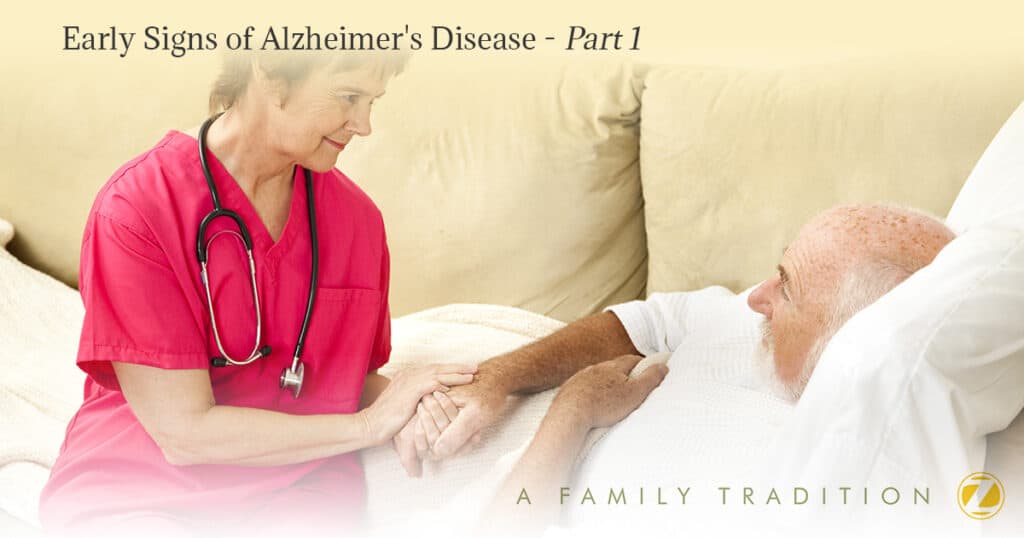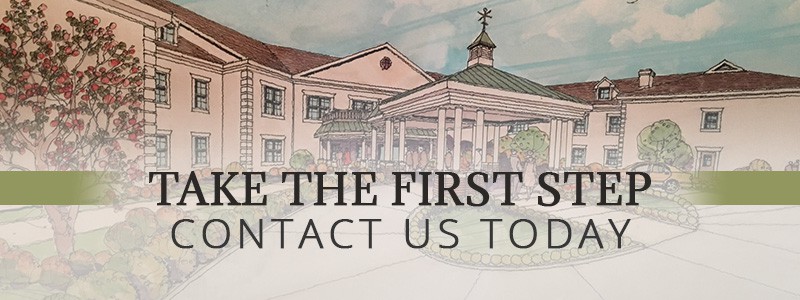
When people hear “Alzheimer’s,” they immediately think about memory loss. While memory loss does occur, it’s actually one of the more advanced symptoms of the disease. Alzheimer’s starts out with smaller, more subtle symptoms. If your family has a history of the disease, it’s a good idea to keep a sharp eye on aging loved ones for signs that Alzheimer’s is making an appearance. Alzheimer’s treatment is most effective in the early stages of the disease, so the sooner you catch it, the better.
Identifying signs of Alzheimer’s can be tricky. You don’t want to jump the gun and assume everything is a sign of the disease, but you don’t want to dismiss symptoms, either. Because Alzheimer’s presents in ways that can look like normal, age-related changes, it’s important to know exactly what to watch for. In our next two blogs, we’re going to take the time to carefully examine the earliest signs of Alzheimer’s disease. Read on!
The Earliest Symptoms of Alzheimer’s Disease
Watching your loved one for forgetfulness isn’t enough. Instead, you and your loved one’s friends can help out by being familiar with the early symptoms of Alzheimer’s disease.
-
Your loved one struggles to solve easy problems.
- Abstract thought processes are often damaged at the beginning of Alzheimer’s. It is normal to make a mistake or two or to ask for help with a problem, but at some point, it can become a warning sign. If your loved one consistently exhibits troubles working through issues or tasks that haven’t slowed him or her down in the past, you may be seeing a warning sign.
-
Your loved one exhibits confusion with spatial relationships and visual images.
- Though it is normal for vision clarity to deteriorate with age, a person developing Alzheimer’s will exhibit extra problems involving spatial relationships. For instance, you may see your parent struggling to judge distances or reading signs. This can often show up in driving, where you’ll see your loved one following other vehicles too closely or just the opposite. You may also see things like your loved one passing a mirror and thinking it’s someone else. If you see odd symptoms like these, it is probably time to check in with a specialist.

-
Your loved one loses belongings and cannot retrace his or her steps.
- It’s normal to misplace belongings, and we tend to do so more as we get older. However, we can usually retrace our steps to find the missing item. When a loved one can’t retrace his or her steps anymore, this can be a significant warning sign. It can also have a big impact on daily life because it tends to happen over and over again.
-
Your loved one shows bad judgment.
- Alzheimer’s affects the way people behave. You probably know your loved one well enough to know when something is off, and judgment calls can be pretty obvious indicators that something is up. We often hear of people listening to telemarketers or being duped by people they would have rebuffed in the past. This can be a frustrating situation, but if you know your loved one would never agree to something and yet they have anyway, it may be time to contact an expert.
-
Your loved one’s personality changes.
- Older people tend to get set in their ways, and that is normal. However, if your loved one gets very upset when tiny things change or he/she has to leave a comfort zone, it can be the sign of a problem. We recommend you keep a closer eye on your loved one and be ready to turn to an expert should the behavior continue.
Turn to The Heritage
Ensuring that people have comfortable, convenient places to live where they have the support they need drives the entire Heritage team. We understand the stress, fear, and pain that memory problems create in people and their families, and that is why we offer solutions like the Legacy Place, a secure community in which people with memory problems can thrive. We are especially aware that independence is important in this situation, and that is why we individualize care, provide activities, and make preserving dignity our highest priority. Contact our assisted living community in New Jersey to learn more!
